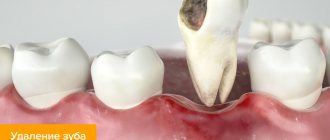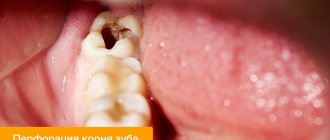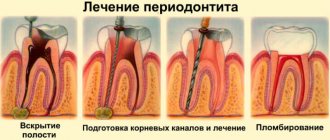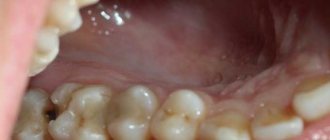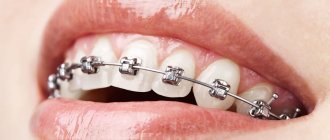Author's rating
Author of the article
Green Elena Stanislavovna
Otolaryngologist of the second category
Articles written
665
about the author
From time to time, each of us can feel the taste of iron in our mouths. Usually people do not pay attention to this for the reason that the aftertaste goes away within a few minutes. But what if he doesn’t leave you for a long time - days or even weeks? Here we can talk about various pathologies. What does a cough with a metallic taste mean, why does belching occur with a metallic taste - more on that later.
Iron taste in the mouth: what does it mean?
The taste of iron when coughing is not always a sign of a disease of the respiratory system. Most people associate the taste of metal in the mouth with blood. This is the case: the primary cause of this symptom is anemia with a lack of vitamin B12 or folic acid.
In the throat you can feel the taste of iron in diseases of the gastrointestinal tract, pancreas, especially if it is accompanied by a sour aftertaste.
The appearance of an iron taste in the mouth can occur during pregnancy if there is a lack of B vitamins due to refusal of food of animal origin.
Recommended reading: Blood in saliva without coughing.
Causes
In most cases, after coughing, a taste of iron in the mouth may be felt due to pathologies. Which ones:
- Bronchial asthma. This pathology is chronic and belongs to the category of diseases of the respiratory system. It is characterized by a condition in which the lumen of the bronchi narrows. Additionally, there is a violation of the ratios of the overwhelming number of cellular elements, affecting the structure of the organ.
- Bronchiectasis, emphysema. Patients suffering from chronic diseases over a long period of time may experience unpleasant symptoms associated with a metallic taste in the mouth. If this symptom occurs after a cough, you should pay attention to this and be wary, as this is an alarming sign. These diseases are extremely dangerous and require immediate medical attention and appropriate treatment. Otherwise, they can be fatal. The reason is the difference in ventilation and diffuse lung function.
- Oncological diseases. When malignant tumors form, damage to the tissue structures of organs develops. These signs are also characteristic of benign formations. As a result, damage to the vascular tissues in the organ occurs. The result will be an unpleasant iron taste in the mouth, which makes itself felt after coughing.
- Sinusitis. The process of sputum discharge or a severe runny nose can cause a lot of discomfort. One of these is the taste of blood in the mouth with a metallic taste. These signs can appear against the background of sinusitis, sinusitis, ethmoiditis.
- Laryngitis and pharyngitis. Bloody and metallic taste can be a consequence of the development of inflammatory processes in the larynx or pharynx.
- Tuberculosis. The disease affects the lungs, causing a severe cough. The last stages of the disease can cause coughing with a taste of blood and metal, since the discharge contains blood impurities.
All of these diseases are classified as pulmonary pathologies. They can cause these unpleasant symptoms and a number of other symptoms.
- Cough with a taste of blood: causes and treatment methods
But not in all cases, the metallic taste that manifests itself after a cough can appear due to diseases of the respiratory system.
There are a number of other reasons:
- Use of antibiotics, antidepressants, antihypertensive drugs and drugs for diabetes.
- During diagnostics using tomography or x-rays, a special contrast agent is used. Incomplete removal from the body can cause characteristic unpleasant symptoms.
- Particles of metal dust can penetrate into the respiratory tract and mouth area, which can cause this symptom.
- Intoxication of the body due to the influence of heavy metals.
- Diseases associated with the pancreas, various manifestations of food allergies.
- Vitamin deficiency with a deficiency of B vitamins, anemia, lack or imbalance of elements in the blood.
To identify the exact causes of these disorders, immediately seek help from a doctor.
An experienced specialist will study the patient’s clinical picture in detail, refer him for detailed diagnostic studies using instrumental diagnostics, and clinical laboratory tests.
The main causes of a metallic taste in the mouth
The taste of iron in the mouth when coughing can appear with the following diseases:
- Bronchial asthma. A chronic disease of the respiratory system, which is characterized by a narrowing of the lumen of the bronchi, as well as a violation of the ratio of various cellular elements in the structure of the bronchi.
- Sinusitis. You can feel “blood breathing” with sinusitis, frontal sinusitis, and ethmoiditis. This is especially noticeable if you blow your nose a lot due to difficult sputum discharge.
- Pharyngitis and larigitis. Severe inflammation in the pharynx and larynx can cause a bloody taste in a person’s mouth.
- Bronchiectasis, pulmonary emphysema. If, after many years of chronic respiratory diseases, you have a metallic taste in your mouth when you cough, there is cause for concern. Bronchiectasis and emphysema are serious and fatal diseases if not treated properly. They arise due to differences in the ventilation and diffusion capacity of the lungs.
- Tuberculosis. At the last, open stage of this disease, a person begins to cough up bloody discharge. It is not surprising that there is a sensation of the taste of blood in the mouth.
- Oncology. Malignant neoplasms tend to damage tissue, as do benign ones, which can lead to disruption of the integrity of blood vessels in the lungs. Accordingly, with a strong cough you will feel the taste of iron.
Recommended reading: What to do if you have a bitter taste in your mouth when you cough?
These diseases directly affect the respiratory system, but they are not the only ones that can cause similar symptoms. The taste of iron in the mouth also occurs when:
- Taking certain types of antibiotics, antidepressants, antihypertensives, and diabetes medications.
- Incomplete removal of the contrast agent after an x-ray or tomography with contrast.
- Getting small particles of metal dust into the oral cavity and respiratory tract.
- Heavy metal poisoning.
- Pathologies of the pancreas, allergic reactions to food.
- Anemia, avitaminosis of B vitamins, disturbances in the composition of circulating blood.
To confirm a particular diagnosis, it is necessary to conduct laboratory, clinical, and instrumental studies.
Main reasons causing the symptom
First of all, you need to make sure that the appearance of a strange taste is not associated with a cough . It may be caused by gum disease : ulcerative gingivitis, dental abscesses. Also, a metallic taste may appear due to damage to the small vessels of the larynx during a cough as a result of overexertion.
Important! The fact that no blood is visually detected when coughing suggests that the likelihood of a serious illness (tuberculosis, tumor) is extremely low. You should immediately undergo an examination if blood in the form of clots is actually present in the discharge.
A metallic taste can be caused by factors not mediated by a specific disease (cough acts only as an additional symptom):
- taking certain types of antibiotics, medications for blood pressure, diabetes, heartburn, antidepressants;
- side effect from the use of contrast agents used in computed tomography;
- exposure to smoke, dust;
- burning mouth syndrome;
- food allergies;
- food poisoning with heavy metals (mercury, lead).
- Diseases that directly provoke the appearance of an iron taste when coughing:
- bronchial asthma;
- sinusitis;
- viral pharyngitis;
- emphysema;
- tuberculosis;
- oncological diseases.
Note! Sometimes the problem of an unpleasant taste in the mouth after a cough is related to the sense of smell and is associated with a loss or change in it under the influence of a viral or bacterial infection.
Alarming symptoms
If you have a metallic taste in your mouth after coughing, you should not panic ahead of time. Only in the aggregate of a number of symptoms can one really become concerned and go to the doctor for further investigation.
You can go to the doctor at any time convenient for you in the following cases:
- You do not experience significant discomfort due to the taste and smell of iron appearing in your mouth. This symptom does not bother you.
- In the event that the oral cavity is visited by the smell of iron only from time to time, also without causing you significant inconvenience.
- If, apart from the unpleasant taste and smell, you do not feel any other symptoms.
Additional manifestations of the disease, such as headaches, weakness, apathy, loss of strength, drowsiness, inadequate skin color, digestive problems, and signs of intoxication, may be a reason for suspicion.
Maybe,
When you need to urgently visit a doctor
If you have a dry cough and an unpleasant taste in your mouth, you may need urgent consultation with a specialist. It is worth noting that no doctor can identify the root cause of the disease during the initial examination. It is impossible to do without additional examinations.
The table below shows cases when you need to see a doctor urgently, and when his visit can wait several days.
| When can you make an appointment with a doctor on any convenient day? | When an ambulance may be needed |
| A visit to a specialist can be postponed for several days if the metallic taste in the mouth does not cause any particular discomfort. | Urgently calling emergency help will be required if the patient experiences the presence of not only an iron taste in the mouth, but also sputum interspersed with blood. Bloody streaks may also be observed. |
| A hospital visit may be delayed slightly if the taste only occurs occasionally. | Emergency assistance should also be called when, in addition to coughing, the patient has asthma attacks. |
| You can postpone visiting a doctor if the symptom is not accompanied by other negative symptoms. | Immediate examination by medical professionals is necessary for the patient if a metallic taste appears after any injury has been suffered. |
| An ambulance is urgently needed when the unpleasant taste is not accompanied by a cough and it appears on its own. | |
| A smoker should immediately visit the hospital if he has an unwanted taste in his mouth. | |
| Help is needed if the taste, similar to the sensations when licking an iron object, does not go away for a long period of time. |
If you have a condition that does not require urgent help, you can visit a doctor on any convenient day. However, this does not mean that you do not need to see a doctor at all. You will need to visit the hospital in the next few days.
Diagnostic methods
Making the correct diagnosis is the key to correct treatment. Remember that only a doctor should prescribe it to you and diagnose the disease. When visiting a medical institution with a similar complaint, you will be sent for the following studies:
- Blood analysis. This analysis will evaluate blood hemoglobin, the number of red blood cells, white blood cells, and platelets.
- Blood chemistry. This test helps detect increases in certain chemical components of the blood, including Iron, iron transport proteins and other compounds.
- X-ray for suspected diseases of the respiratory system.
- Computed or magnetic resonance imaging.
- Endoscopy of the esophagus and stomach if diseases are suspected in them.
- Bacteriological culture. If your doctor suspects a bacterial infection, he or she may order a culture to identify the pathogen.
In each specific clinical case, the combination of diagnostic methods is unique, although it corresponds to the general research schemes.
What measures should be taken
In most cases of unknown etiology, the metallic taste disappears unnoticed , as after recovery from the disease. First of all, it is necessary to examine the oral mucosa and the surface of the pharynx and larynx for scratches or ulcerations.
If the appearance of a taste is caused by a disease and is complicated by additional symptoms , you should consult a diagnostician to prescribe appropriate treatment.
Important! The main thing is to exclude serious diseases - lung cancer, emphysema, and to prevent chronic inflammatory processes in the organs of the respiratory system.
General recommendations and prevention
- Clean your mouth regularly, don’t forget to brush your tongue;
- enrich your diet with citrus fruits and foods that promote increased salivation, which will change your taste sensations;
- try to use drugs that regulate stomach acidity less often;
- do not eat food from metal utensils;
- mouth rinse. You can use a solution of salt in water - 1 tsp. for 250 ml (glass) of water.
Treatment methods
It is quite difficult to talk about treatment, since the iron taste in the mouth is only a symptom that is often accompanied by some diseases of both the respiratory, digestive and circulatory systems.
It is necessary to treat not the symptom itself, but the disease that was the cause. The treatment method for each of the above cases is different.
For example, with anemia, the main task is to eliminate the cause of its development and replenish the supply of hemoglobin, iron, and red blood cells in a person’s blood.
In case of poisoning with metal salts, urgently begin detoxification therapy.
Homeopathic treatment
Photo 2: Treatment with homeopathic medicines is carried out only after an individual examination, which allows you to determine the exact dosage and determine the main cause of the metallic taste in the mouth.
Source: flickr (Dit is Suzanne). The use of a complex of several drugs helps to eliminate associated symptoms and successfully treat chronic diseases .
| Drugs | Symptoms |
| Aesculus hippocastanum | When you feel the presence of a foreign body in the respiratory tract, the color of the wall of the pharynx appears. |
| Aethusa cynapium | The drug from the plant Kokorysh vulgaris normalizes the respiratory rhythm. |
| Ammonium carbonicum | Chronic respiratory diseases, which are accompanied by cough. |
| Senega Officinalis | When a complex of symptoms associated with catarrhal lesions of the upper respiratory tract appears. Characterized by nasal and throat congestion, cough, voice changes, fever, and other manifestations of intoxication. |
| Ranunculus bulbosus | For pleurisy and pneumonia, difficulty breathing, which is accompanied by a feeling of tightness in the chest. |
| Natrum muriaticum | With increased secretion of the mucous membranes, which provokes the accumulation of sputum. |
| Calcarea carbonica Often in combination with several drugs: Kalium bichromicum + Silicea + Kalium iodatum | With chronic inflammatory processes that are accompanied by cough. For example, with long-term sinusitis. |

